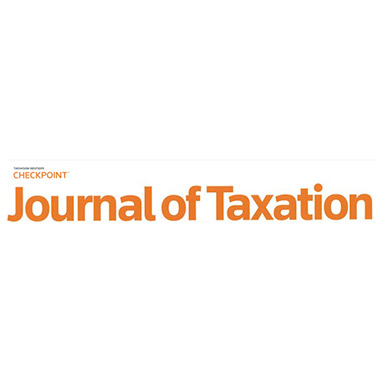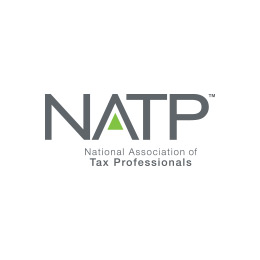If you live abroad or have foreign assets, you likely have additional reporting requirements to the IRS. Failure to report international assets can result in severe financial penalties.
Fortunately, our international tax attorneys can help you determine your options if you are unsure of what you owe. There are numerous requirements to satisfy FBAR and FATCA filings. If the IRS believes you willfully hid assets, they could potentially take half the value of those assets as a penalty. However, the IRS has a few programs to help you get ahead of any potential negative consequences of a filing mistake.
For a free analysis of your case, contact our international tax attorneys at McCormick Tax Law today at (215) 630-0861.
Report of Foreign Bank and Financial Accounts (FBAR) Requirements
The acronym FBAR stands for “Foreign Bank Account Report,” also known as a Report of Foreign Bank and Financial Accounts. It imposes additional responsibilities on certain U.S. taxpayers who possess or have control over foreign accounts with a collective worth exceeding $10,000 during the calendar year. In these situations, taxpayers will be required to file an FBAR.
If a taxpayer does not comply, their account information from a foreign bank can be reported to their country’s taxing authority and eventually provided to the US Department of Treasury. If there are no intergovernmental agreements in place, the account holder’s information will go straight to the US Department of Treasury. The IRS can also discover non-compliance through foreign income reported on tax returns or information forms. The IRS may investigate potential FBAR violations once they have this information.
Non-compliance with FBAR regulations can result in facing civil and criminal penalties. The penalty amount for each violation typically cannot exceed $10,000. However, if the violation is deemed intentional, the penalty would be greater, which is either $100,000 or 50% of the balance in the account at the time of the violation.
Fortunately, taxpayers who have unreported foreign financial accounts can utilize the Delinquent FBAR Submission Procedures program, which is a part of the Offshore Voluntary Disclosure Program (OVDP), to ensure compliance and avoid penalties.
Penalties for Failing to File an FBAR
It is crucial to understand the FBAR requirements that apply to you to avoid severe consequences of missing an FBAR filing deadline or making an incorrect FBAR filing. The government will typically assess penalties for FBAR violations by determining whether the taxpayer committed the offense willfully or not.
Failure to report FBARs unintentionally can result in a penalty of up to $10,000. If multiple accounts are not reported correctly, the government can impose a $10,000 fine for each account for each applicable year. It should be noted that intentionally avoiding knowledge of one’s FBAR obligations, also known as “willful blindness,” will not serve as a defense against willful FBAR allegations.
It is important to know the difference between willful and non-willful FBAR violations because the penalties for willful violations can be much harsher. The government has the authority to impose penalties of up to $100,000 or 50% of the total account balance, whichever is greater if evidence shows you willfully hid your income.
Foreign Account Tax Compliance Act (FATCA) Requirements
Reporting foreign financial assets is an essential part of the U.S. government’s efforts to prevent tax evasion by American individuals who hold accounts and other financial assets abroad. The Foreign Account Tax Compliance Act (FATCA) is a crucial initiative in this regard. To comply with FATCA, certain U.S. taxpayers who have financial assets outside the country must report them to the IRS using Form 8938, Statement of Specified Foreign Financial Assets. Failure to report these assets can result in severe penalties, as outlined below. Moreover, this FATCA requirement is separate from the obligation to report foreign financial accounts on the Report of Foreign Bank and Financial Accounts (FBAR).
Under FATCA, specific foreign financial institutions are obligated to directly report to the IRS financial accounts held by U.S. taxpayers or foreign entities in which U.S. taxpayers possess a significant ownership interest. These reporting entities comprise not only banks but also investment entities, brokers, and specific insurance companies. Additionally, some non-financial foreign entities must disclose certain U.S. owners.
When creating an account with a financial institution based in another country, they will usually inquire about your citizenship. Under FATCA regulations, some financial institutions are exempt from extensive reporting requirements for U.S. account holders if they primarily serve account holders residing within their country of origin and do not actively seek business outside of it. However, in order to qualify for this exemption, the foreign institution cannot discriminate against U.S. citizens who reside in the country where it is based by refusing to open or maintain their accounts.
FATCA Reporting Requirements
Under FATCA, specific U.S. taxpayers with foreign financial assets totaling more than $50,000 must report information about those assets on Form 8938. This form should be attached to the taxpayer’s annual income tax return. However, married taxpayers filing a joint annual income tax return and some taxpayers living in a foreign country have higher reporting thresholds.
Typically, only individuals are obligated to disclose their foreign financial assets. However, U.S. domestic entities may also be required to report their foreign financial assets for tax years starting in 2013 and beyond. There are some exceptions to the filing requirement for Form 8938. For instance, if you are not obligated to file a U.S. income tax return for the year, you do not have to submit Form 8938, regardless of the value of your specified foreign financial assets. Additionally, if you have already reported interests in foreign entities and certain foreign gifts on other forms, you can simply list these forms on Form 8938 without repeating the details.
How the Offshore Voluntary Disclosure Program (OVDP) and Streamlined Disclosure Can Help
Making errors in disclosing foreign accounts under FBAR or FATCA may result in significant penalties for taxpayers, even if the mistakes were not intentional. Nevertheless, there is a chance to decrease or avoid such penalties by utilizing the IRS’s Offshore Voluntary Disclosure Program (OVDP) or Streamlined Disclosure Program.
If taxpayers suspect that their noncompliance with FBAR requirements was willful, they can make use of the Offshore Voluntary Disclosure. On the other hand, those who were negligent, careless, or even grossly negligent could be eligible for the Streamlined Disclosure Program. While this program entails less stringent filing obligations and penalties for non-US residents, it does not offer safeguards against potential penalties in case the IRS finds that the taxpayer’s actions were indeed willful.
Our International Tax Attorneys Can Help
Call McCormick Tax Law at (215) 630-0861 to receive a free case assessment with our international tax lawyers.










